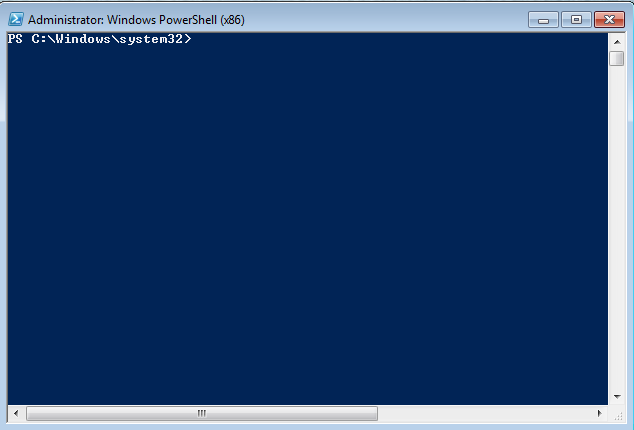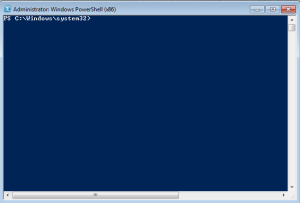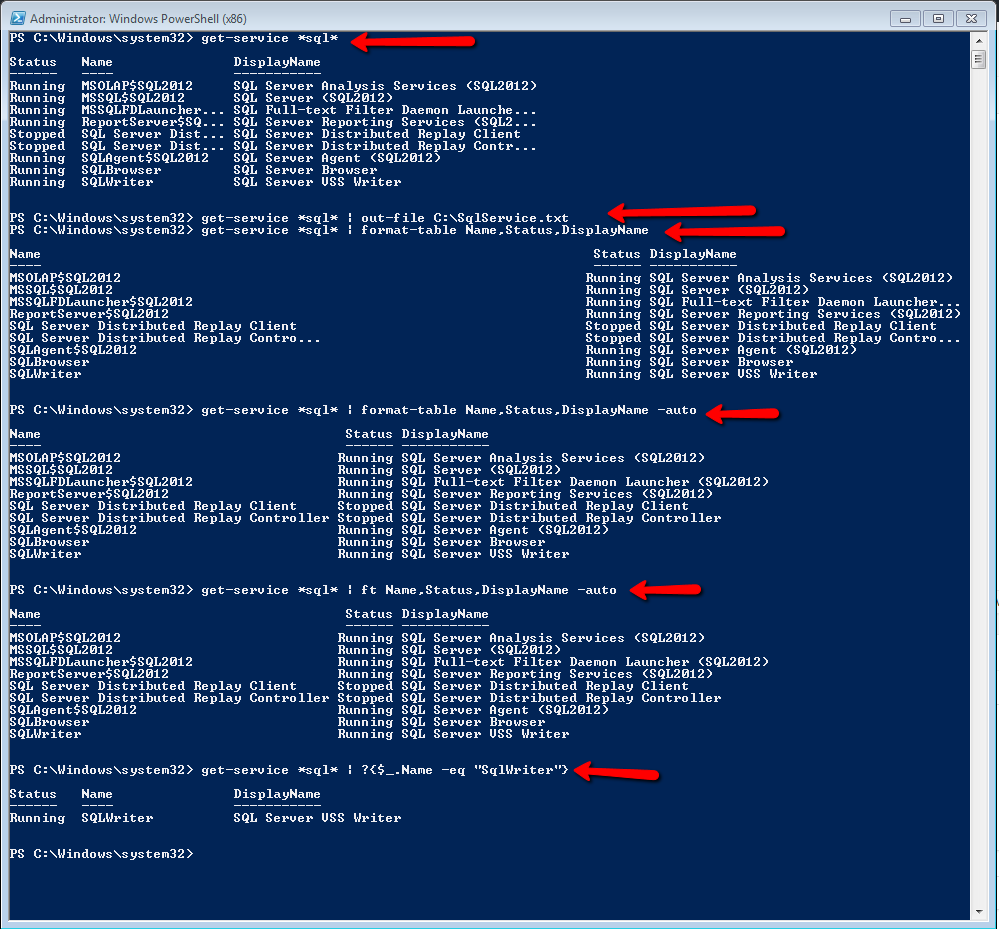Windows PowerShell is a configuration management framework to perform administrative tasks.This tool is developed by Microsoft & available from 2006.This is one of the best tool for SQL DBA’s.It is a command line shell and associated scripting language.
There are so many sites availabe giving knowledge on powershell, I will not go on theory part.
Let’s hands-on Windows PowerShell-
PowerShell commands are verb-noun format. It also works as windows command prompt.
GoTo Start >> Type PowerShell then click Windows PowerShell (Or run it as administrator)
It is difficult to learn its all commands,So I always use help command to get all commands.It also support maximum DOS commands.
type help it will give you description about powershell.To get all commands type get-command
- get-service
- For getting service list
- get-process
- For getting process like task manager
Please try few more commands by yourself. Lets enhance our command writing with conditions-
Conditions- To apply condition Pipeline (|) is used in PowerShell.
Let we need the output of powershell command on a text file-
get-process | out-file <path>
get-process | out-file c:\Process.txt or this command is also written as get-process | >C:\Process.txt
In above image we can see different conditions on same command. format-table or ft used for table formating, -auto is used for adjusting table column size.
Last command contains few special characters like ?, $_ ……
? represent where clause, we can write either where or ?
$_ is Current Iteration. for looping we use for-each or %{<Command>}
So the last command in above image says get a service that contains sql word in its name where name of service equal to sqlwriter.
Now we want to stop this service so the command for this should be-
get-service | ?{$_.Name -eq “SqlWriter”} | %{$_.Stop()}



4 responses to “Introduction to Windows PowerShell (Part1)”
Thank you Mr.Vimal. I am following you.
[…] Introduction to Windows PowerShell (Part1) […]
[…] Introduction to Windows PowerShell (Part 1) […]
[…] Introduction to Windows PowerShell (Part1) […]